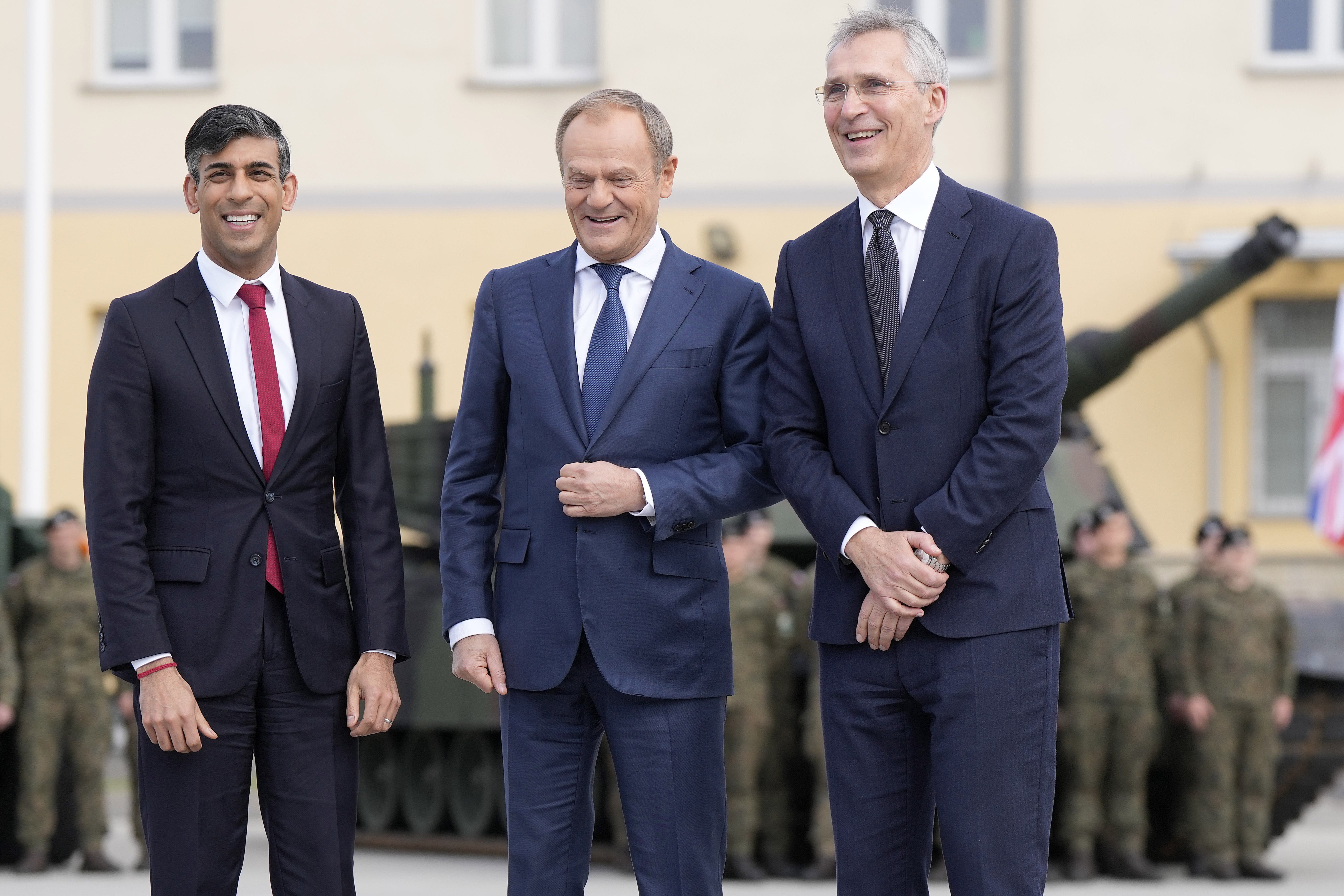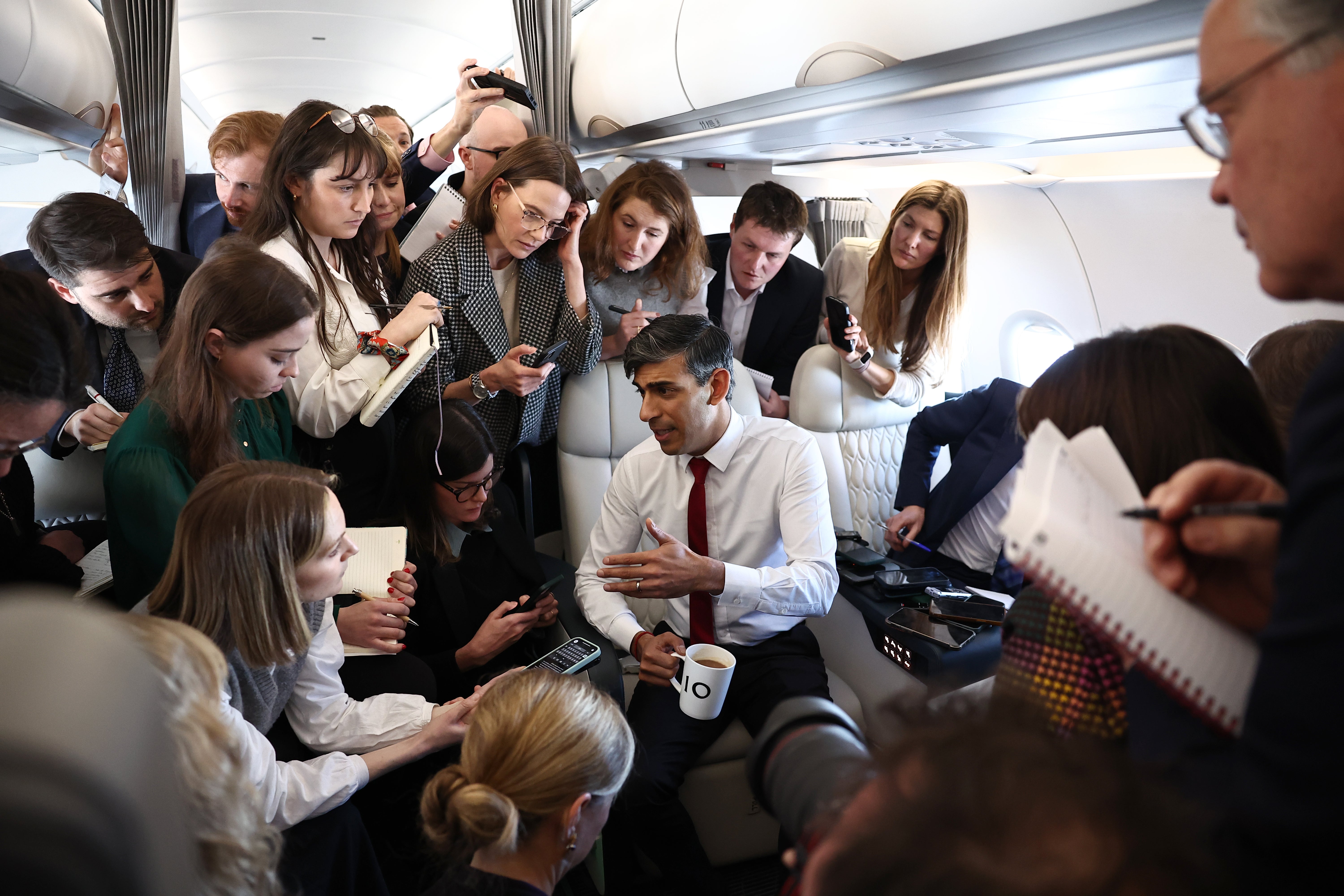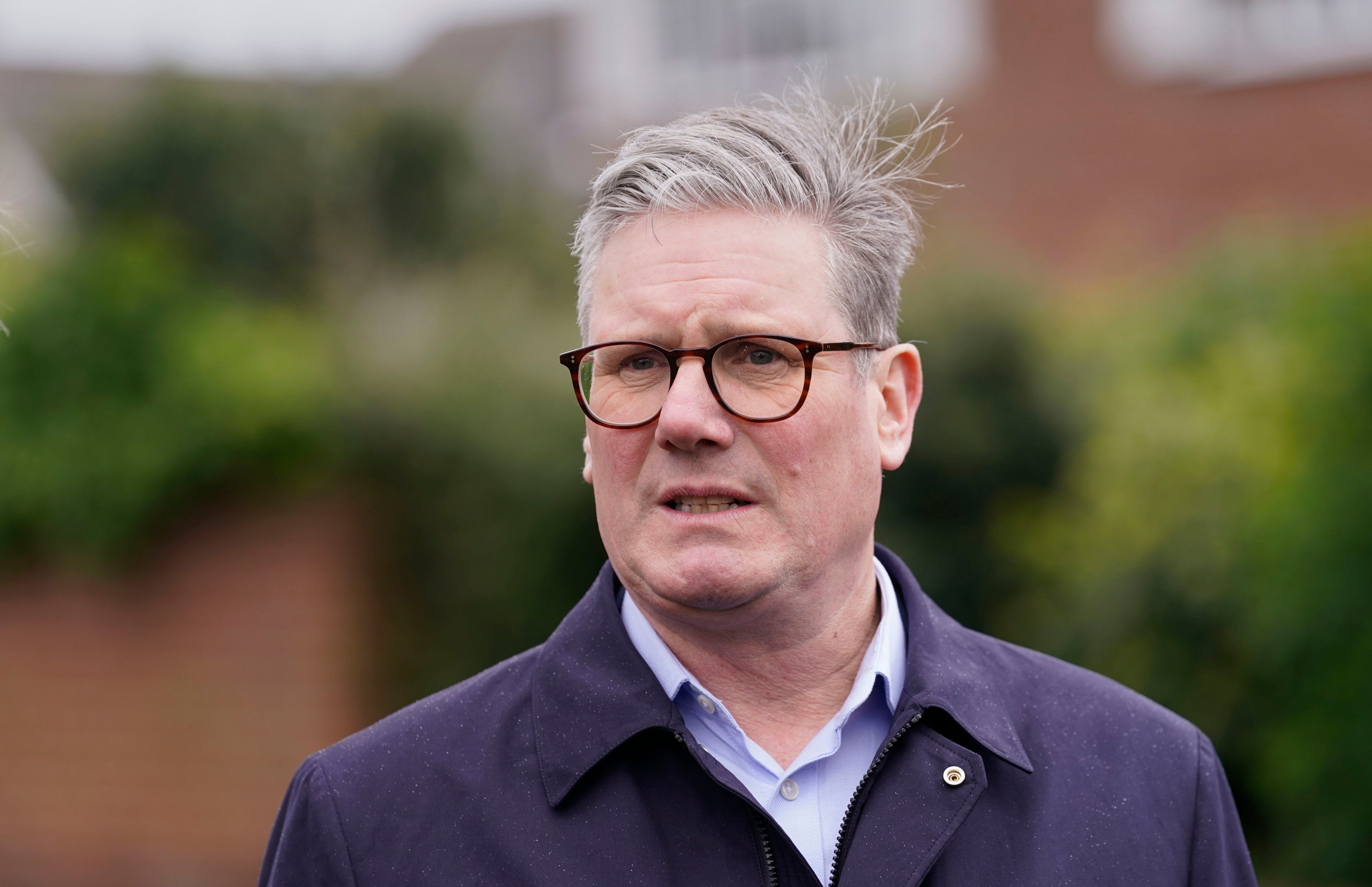Britain to spend 2.5 per cent of GDP on defence by 2030, Rishi Sunak announces
Boris Johnson first promised in 2022 that Britain would spend 2.5 per cent of GDP on defence by the end of this decade
Your support helps us to tell the story
From reproductive rights to climate change to Big Tech, The Independent is on the ground when the story is developing. Whether it's investigating the financials of Elon Musk's pro-Trump PAC or producing our latest documentary, 'The A Word', which shines a light on the American women fighting for reproductive rights, we know how important it is to parse out the facts from the messaging.
At such a critical moment in US history, we need reporters on the ground. Your donation allows us to keep sending journalists to speak to both sides of the story.
The Independent is trusted by Americans across the entire political spectrum. And unlike many other quality news outlets, we choose not to lock Americans out of our reporting and analysis with paywalls. We believe quality journalism should be available to everyone, paid for by those who can afford it.
Your support makes all the difference.Rishi Sunak has promised to boost Britain’s defence spending to 2.5 per cent of GDP by 2030 – despite critics raising concerns about how he will pay for the promise.
At a press conference alongside Nato secretary general Jens Stoltenberg, the prime minister promised an extra £75bn in defence spending over the next six years.
He warned that the world is “the most dangerous it has been since the end of the Cold War”, and pledged to put Britain’s defence industry “on a war footing”.
And Mr Sunak repeated a promise made by Boris Johnson in 2022 to hit the 2.5 per cent of GDP target for defence spending this decade.

But economist Torsten Bell, chief executive of the Resolution Foundation think tank, said the promise was “a lot easier to announce than deliver”.
And Labour said the Conservatives “cannot be trusted on defence”, adding: “The British public will judge ministers by what they do, not what they say.”
It was the latest statement in a flurry of activity by the PM as he seeks to close the polling gap with Labour ahead of a general election this year.
Last Friday he made a speech promising to end Britain’s “sick note culture”, while on Monday he held a rare Downing Street press conference to set out details of how his Rwanda deportation plan will work.
Mr Sunak’s announcement was supported by backbench Conservative MPs, with former defence minister James Heappey describing it as “much needed”. Mr Heappey, who quit last month and called for a boost to defence spending, added that it was “enormous news”.
Former chair of the defence committee Tobias Ellwood welcomed the announcement, saying: “We should be under no illusion how the global threat picture is changing.”
Speaking on a visit to Poland, the prime minister set out his plan to meet the target by 2030.
Mr Sunak said it would amount to “the biggest strengthening of our national defence for a generation”. The UK currently spends just over 2 per cent of its GDP on defence.
But critics cast doubt on the announcement, noting that Mr Johnson promised at a Nato summit in 2022 to increase Britain’s defence spending to 2.5 per cent of GDP this decade.
Mr Bell pointed to post-election spending cuts that have already been pencilled in to fund Mr Sunak’s national insurance tax cuts, adding that it would be “totally impossible” to deliver these while raising defence spending to 2.5 per cent of GDP.
“The degree of fiscal commitments/fictions being built up for after this election is a real problem,” he added.
The prime minister promised the spending pledge would come “without any increases in borrowing or debt”. It is understood that two-thirds of the uplift in defence spending will be paid for by reducing the civil service headcount to pre-Covid levels. The government has announced plans to cut the equivalent of 70,000 jobs – with £2.9bn of savings being redirected to the defence budget.
Mr Sunak stressed that the UK is “not on the brink of war”, but warned about the threats facing the world from “an axis of authoritarian states” including Russia, China, Iran and North Korea.

He said: “The danger they pose is not new, but what is new is that these countries or their proxies are causing more instability, more quickly, in more places at once.
“And they’re increasingly acting together, making common cause in an attempt to reshape the world order.”
The PM said that although some people might think “these are far-away problems”, they “pose real risks to the United Kingdom’s security and prosperity”.
In 2014, Nato heads of state agreed to commit at least 2 per cent of GDP to spending on either their own armed forces or those of Nato allies or the alliance itself.
The prime minister and the chancellor Jeremy Hunt had previously said only that the 2.5 per cent goal would be met when the economic conditions allowed.
While the announcement was welcomed by some Tory MPs, others would have liked the prime minister to go further. Defence secretary Grant Shapps has called for Britain to spend 3 per cent of its GDP on defence against the backdrop of Vladimir Putin’s war on Ukraine. And three former defence secretaries, Michael Fallon, Gavin Williamson and Ben Wallace, last month called on the PM to promise an increase in spending to 3 per cent of GDP.
Under the new spending plan, the UK defence budget will increase immediately and then rise steadily to reach £87bn by the end of the decade.
Mr Sunak said: “In a world that is the most dangerous it has been since the end of the Cold War, we cannot be complacent. As our adversaries align, we must do more to defend our country, our interests, and our values.
“That is why today I am announcing the biggest strengthening of our national defence for a generation.
“We will increase defence spending to a new baseline of 2.5 per cent of GDP by 2030 – a plan that delivers an additional £75bn for defence by the end of the decade and secures our place as by far the largest defence power in Europe.
“Today is a turning point for European security and a landmark moment in the defence of the United Kingdom. It is a generational investment in British security and British prosperity, which makes us safer at home and stronger abroad.”

Mr Sunak’s announcement comes just weeks after Sir Keir Starmer confirmed his own ambition to boost the defence budget to 2.5 per cent of GDP.
Responding to the PM’s statement, shadow defence secretary John Healey said the Conservatives “have shown time and time again that they cannot be trusted on defence”.
He added: “The British public will judge ministers by what they do, not what they say.
“Labour will conduct a strategic defence and security review in the first year in government to get to grips with the threats we face, the state of our armed forces, and the resources required.”

Join our commenting forum
Join thought-provoking conversations, follow other Independent readers and see their replies
Comments